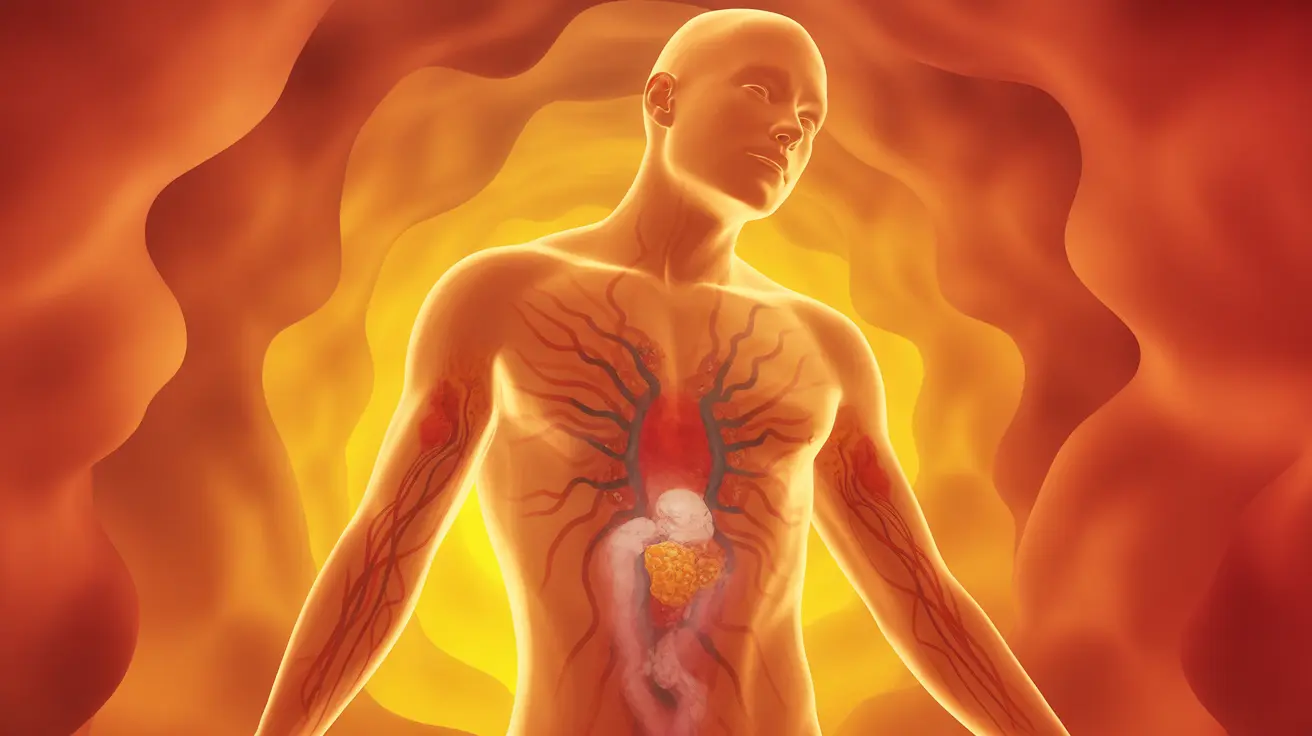When temperatures rise, our bodies respond in complex ways that can affect our overall health and well-being. One significant concern is the relationship between heat exposure and inflammation, which can impact everything from our immune system to our cardiovascular health. Understanding these connections is crucial for protecting ourselves during hot weather and maintaining optimal health.
Recent research has revealed important links between heat exposure and various inflammatory responses in the body. This article explores how heat affects our immune system, triggers inflammation, and potentially increases risks for certain health conditions.
How Heat Triggers Inflammation in the Body
Heat exposure can initiate several inflammatory responses in our bodies. When we're exposed to high temperatures, our bodies release inflammatory markers and stress proteins as part of the natural response to thermal stress. This process can lead to both acute and chronic inflammation, depending on the duration and intensity of heat exposure.
The Inflammatory Response Process
During heat exposure, the body undergoes several changes that can promote inflammation:
- Release of pro-inflammatory cytokines
- Increased oxidative stress
- Enhanced production of heat shock proteins
- Elevated levels of stress hormones
- Changes in blood vessel dilation
Impact on the Immune System
Heat exposure can significantly affect our immune system's functionality. When our bodies experience prolonged heat stress, it can temporarily suppress certain immune responses, potentially making us more susceptible to infections. The immune system must work harder to maintain balance while dealing with the additional stress of high temperatures.
Cardiovascular Effects of Heat-Induced Inflammation
The relationship between heat exposure and cardiovascular health is particularly concerning. Heat-induced inflammation can affect the cardiovascular system in several ways:
- Increased blood pressure
- Greater strain on the heart
- Enhanced blood vessel inflammation
- Higher risk of blood clot formation
- Reduced blood flow efficiency
Prevention and Protection Strategies
There are several effective ways to minimize heat-induced inflammation and protect your health during hot weather:
- Stay hydrated with plenty of water
- Avoid peak heat hours (typically 10 AM to 4 PM)
- Use air conditioning or find cool spaces
- Wear lightweight, loose-fitting clothing
- Take regular breaks from heat exposure
- Monitor physical activity in hot conditions
Frequently Asked Questions
Can heat exposure increase the risk of infection by affecting the immune system?
Yes, heat exposure can temporarily suppress immune system function, potentially increasing infection risk. The body's stress response to heat can reduce the effectiveness of certain immune cells and mechanisms that fight off pathogens.
What are the symptoms of heat-induced inflammation, and how does it affect overall health?
Heat-induced inflammation can manifest as swelling, redness, fatigue, headaches, and muscle soreness. These symptoms can affect overall health by increasing stress on various body systems and potentially exacerbating existing health conditions.
How does heat stress impact cardiovascular health, particularly for individuals with existing heart conditions?
Heat stress can significantly impact cardiovascular health by increasing heart rate, blood pressure, and inflammation in blood vessels. For those with existing heart conditions, these effects can be particularly dangerous and may increase the risk of cardiac events.
What are the best ways to prevent or reduce inflammation caused by heat exposure during hot weather?
Key prevention strategies include staying hydrated, avoiding peak heat hours, using air conditioning, wearing appropriate clothing, and taking regular breaks from heat exposure. Maintaining a healthy lifestyle and managing existing health conditions also helps reduce inflammation risks.
Is there a link between extreme heat and an increased risk of developing cardiovascular diseases like heart disease or stroke?
Yes, research suggests that chronic exposure to extreme heat can contribute to the development and progression of cardiovascular diseases. The inflammatory responses triggered by heat exposure may increase the risk of heart disease and stroke, particularly in vulnerable populations.




